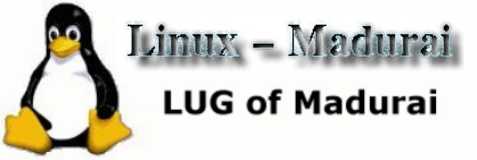|
What's that?
Linux, often known GNU/Linux, is a free, UNIX like operating system, developed originally for home PC's, but which now runs on a variety of platforms.Linux is a multi-user, multi-tasking operating system whose technological heritage hails from the mainframes and supercomputers for which the UNIX model was developed three decades ago.
Linux, is also the birthplace of the open-source methodology which, derived from the free software philosophy, has spawned a revolutionary proliferation of free software, from compilers to word processors.Today with a firm base of atleast 20 million users world wide, Linux continues to grow exponentially as programmers, enthusiasts and end users exchange thoughts, implement ideas, contribute code and cooperate in the phenomenon known as open source to produce the operating system known as Linux.
What's free software?
When you buy a "proprietary" software you get a license to run the software and little else.But the free software model advocates the availability of source code along with product.The model does not, as has been wrongly perceived, advocate the free ( no money ) release of software, though thats appreciated.
How did it start?
It all started way back in 1979 when AT&T decided to commercialise its flagship operating system, Unix.This decision raised protests from several quarters notably UC california at Berkeley, which decided and developed its own variant of UNIX called Berkeley Standard Distribution(BSD).Another response came from arch hacker and legendary programmer Richard Stallman who quit his job at MIT's famed Artificial Intelligence labs, to set up the Free Software Foundation in Boston in October 1985.His objective then was to deliver a free,Unix-like operating system, called GNU (a recursive acronym for Gnu is Not Unix).
RMS as he is better known developed such classics as gcc (by far the most ported compiler), GNU EMACS editor and gdb - a debugger.All the system lacked was a kernel and this vital 'organ' was provided by Linus Torvalds who along with a team of hackers from around the world developed it.
Why do some people refer to Linux as GNU/Linux?
As can be understood from the previous question, the Linux system contains a lot of code and software from GNU.Hence many people prefer to call it GNU/Linux.
What are distributions of Linux and why should i buy them if Linux is free!!
As the popularity of Linux spread, more and more people became interested and a collection of packages from GNU and X - the graphical user interface along with other utilities were packaged and sold by companies.These are called distributions.There are a number of distributions available notably Debian, Redhat, Mandrake etc.,.It makes sense to purchase these distributions since apart from the additional utilies unique to each distro, they also provide a complete Users manual.And of course downloading a complete distro can take you any where between 48-72 hours!!.But again till you buy them you can try the distros provided by mags like PCQuest.
|

